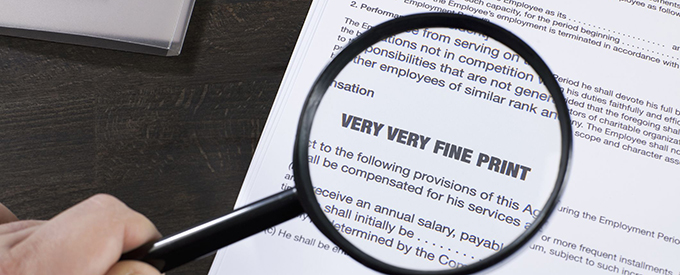
I’ve come to realise that most academics are woefully ignorant about the publishing industry.
Sure, we are delighted when someone wants to publish our work, but do we read the contract we sign in our moment of joy? Do we really understand the consequences of basically signing over our work to a corporate entity with a smiley face?
Most of us might scrutinise a contract for things such as royalties (though, what is a good percentage, anyway?) and the number of free copies we will get. But what about wonkier things such as subsidiary rights and permission to reprint?
I have written or edited more than 20 books but learned the hard way – and only recently – that most of what we write doesn’t belong to us. Do we understand the alacrity with which we gave up our precious intellectual children for adoption to some university or trade press?
When we’ve signed the adoption papers, we can no longer control what happens to our work. A university press can say yea or nay when they receive a request to reprint a portion of a book or an entire essay. They might, if they think of it, ask whether you give permission, but unless that option is specified in your contract (and it usually isn’t), you could be left entirely out of the equation.
Let’s say you were a social justice advocate and a white supremacist publication wanted to reprint your work in order to flog it. You would be unable to deny them that pleasure. While most presses exercise judgement about the kinds of publication that seek permission, the safest protection is to ensure your approval is written into the original book contract.
In addition, a press can set a price on the life of your precious literary child in the form of a permission fee. But you might not see any of the ransom unless you specify that in your contract. (To be fair, most presses will give you 50 per cent or so.)
Furthermore, most publishers now outsource their permissions department to entrepreneurial third parties who act as robotic administrators. You will often find that your contract gives such a third party the right to grant permission for your work. So someone who wants to republish it just fills out an online form with an entity such as Copyright Clearance Center. The process is almost automatic and rarely involves any human thought or nuance.
Of course, some thoughtful person might contact you directly to ask for your approval. That would be a courteous step, but unfortunately it has no legal standing. That’s right: your approval is legally null because when you sign a contract, publishers require that you transfer publishing or subsidiary rights to them. Only the rights holder can grant reprint permission and collect the fee that goes with it. It is entirely possible that you say no but your publisher says yes. All you can do is contact your publisher directly to inform them of the enquiry. Nearly all publishers follow the author’s wishes if a reason is offered, but they are under no legal obligation to do so.
If all of this sounds technical, it is. Academics haven’t been welcomed in to scrutinise the publishing industry’s black box of rights and permissions, even though we are the direct beneficiaries or victims of its machinations.
What’s a concerned author to do? If you want to stay within corporate publishing, you can request that you retain various rights before you sign any contract. If a publisher agrees, then you will have sole jurisdiction to approve or disapprove what happens to your work and to set and receive the reprint permission fee (subject to what your contract says about that). If your publisher says that you can’t have full rights, you can still request that the contract specifies you must be contacted directly to approve any request to reprint.
If you are a critic of neoliberalism and capitalism in your life and writing, however, you might want to take a more equitable step and publish your monograph or essay as an open-source work or by using Creative Commons licences. You retain copyright but essentially allow anyone to reprint your work for free. Many scientists and computer techies are now doing this because they are mindful that intellectual achievements belong to everyone.
Creative Commons has various licences that allow you to restrict the right to publish while generally maintaining the overall commitment to open-source publishing. Some people argue against this approach because independent scholars and poorly paid adjuncts might need the money. It is also true that you lose a measure of control over your work. But the point of open-source publishing is precisely that your work will be made widely available to a range of readers and users. If your goal is to control the use of your work, then Creative Commons might not be the way to go.
Caught between the Scylla of iron-clad publishers’ legalities and the Charybdis of anarchic open source, the newly enlightened author realises there are no simple options. The only answer is to know more about the type of contract you are signing.
There are many ways to be a good parent to your literary offspring. Just make sure you know the rules of the road before you let your beloved work out on publishing’s mean streets.
Author Bio: Lennard Davis is Distinguished Professor of Liberal Arts and Sciences at the University of Illinois at Chicago. He has written and edited books on the history and theory of the novel, disability and normality, and is now working on a book about the representation of poverty.
